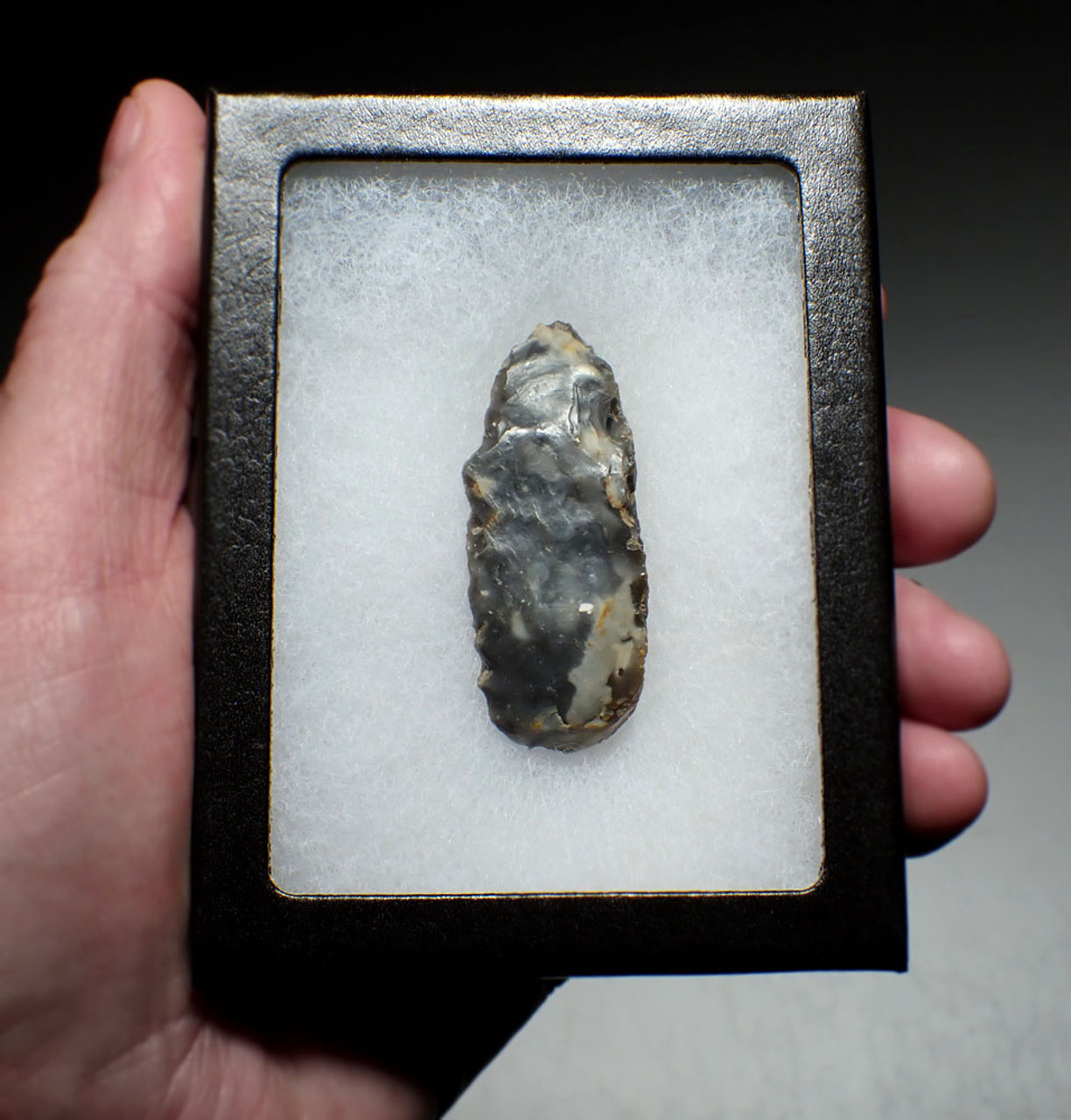Product Description
SEE MORE MOUSTERIAN NEANDERTHAL TOOLS
This authentic stone tool was fashioned by Neanderthals over 40,000 years ago out of flint, and collected from a former Neanderthal occupation rock shelter site from La Chapelle-Aubareil, in the Dordogne region of France. The famous Lascaux prehistoric cave art site is only 3 miles to the north of this famous site. The Dordogne region of France is considered to be the "Capitol of Prehistory" and many of the iconic Early Man sites are located in this area. The site this specimen was found has long been closed and protected by the government. The fact that this archeological site is off-limits to any collecting makes this genuine Early Man stone tool artifact increasingly rare and desirable! Genuine fine grade Mousterian Neanderthal tools such as this specimen are most certain to continue to appreciate in value and become more and more difficult to acquire for a private collector.
This SUPREME QUALITY Neanderthal flake tool type is called a NATURALLY-BACKED KNIFE. A naturally-backed knife is a flake knife that has a backing surface on the flake that shows the original flint nodule cortex. The cutting edge shows incredible heavy use and prehistoric resharpening. The entire surface has a beautiful natural gloss from soil sheen that really shows off the flaking. This tool was made by striking a flake off a flint tool core, and the flake was then further worked to form the shape and cutting edge. Factors such as ergonomics and grip (the shape to make ease of holding the flake) were taken into consideration in the design by its Neanderthal maker. Evidence of prehistoric use and re-sharpening are evident on the cutting edge. It is complete with no modern damage and all its original flaking. A superb example from this famous Neanderthal region!
This is an actual complete Mousterian Neanderthal flake tool with all the features that define it as such, and separate it from worthless and highly common Paleolithic debris flakes (discarded flakes caused by flint-knapping real tools), or flakes made by natural forces such as frost or glacial action. Intact mineral deposits and deep patina on the flint surfaces and hinge fractures testify to its age, authenticity and lack of any modern alterations.
 US DOLLAR
US DOLLAR
 EURO
EURO
 AUSTRALIAN DOLLAR
AUSTRALIAN DOLLAR
 CANADIAN DOLLAR
CANADIAN DOLLAR
 POUND STERLING
POUND STERLING


















